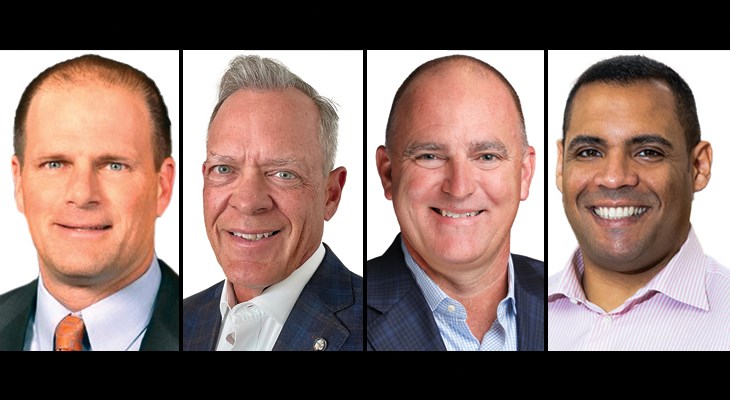At the Charlotte Smart Business Dealmakers Conference, a panel of C-suite executives, entrepreneurs, and an M&A financial adviser, led by moderator Greg Wilcox, a First National Bank Regional Manager, explored the state of the deal market and their respective organizational journeys amid a tightening interest- rate cycle, persistently high inflation, and challenging economic conditions.
One of those stories was from Griffin Brothers Companies Partner Mike Griffin. He says after he sold his car business, which had 10 locations in Charlotte, he created a family office and started looking to acquire smaller business.
“My theory was that if we're $22 million in revenue, we can maybe look for (companies with) $10 million in revenue and they'll be more fair multiples," Griffin says. "We pursued a couple deals in that level and they were still way higher than we would be interested in buying. At that point, we got a little frustrated and we started starting companies from scratch.”
They started their nine portfolio companies by finding a sharp leader in that profession and coupling the person with the business to grow it. Then, he says, they started acquisitions.
“We kind of cut our teeth in the business, then had an opportunity to look for acquisition growth," he says. "Because we didn't have to do things, we didn't pay premiums for companies.”
Compare Foods Supermarkets CEO Omar Jorge says real estate is not an afterthought for the business, real estate is the business.
“Location, location, location is one, two and three," Jorge says. "And a lot of our growth has been where the demographics of the neighborhood has changed and the existing grocery store can no longer be profitable there, we’ll go in and take over the lease, re-merchandise the store, do new types of advertising and really build up the business from there.”
The growth strategy, which has been deployed as several grocers have left the area, is to look at where customers are not being served and follow them there because another grocer is no longer doing the job.
In looking at acquisitions, Jorge says they go very deep into the analytics, much deeper than just sales and the balance sheet and the financials.
“We want to know what's the average cart transaction," he says. "How many customers do you have coming in every single week? What are the percentages in your departments? If you're in a heavily Hispanic area and your meat and your produce departments are below where they should be, we know that’s a growth opportunity for us. When we look at multiples, there's different ways to calculate multiples but there's so many variables that go into it. How long is the lease? What are the terms of the lease? Is there a percentage rent in the lease? Is this a landlord that we've worked with in the past and is easy to get along with? What's the situation with your employees? Why are you selling the business in the first place? So, there are so many variables before we even get to saying it's X of EBITDA, because that number might be 3x or maybe 6x, and 3x might be a horrible deal and 6x might be a fantastic deal. But you really need to get into the nitty-gritty of it and really see what you’re buying before you end up getting to that point.”
The current economy, he says, is likely going to slow down the deal pace significantly mainly because of the rise in interest rates. Many sellers were asking high multiples because they knew that money was cheap and there was a lot of buyers willing to spend that money because there was going to be very low interest on the debt. As the interest rates rise, he says multiples are going to have to adjust, as are seller expectations.
Nucor Corporation Retired Chief Financial Officer Jim Frias says the company had to look at adjacencies.
“We're looking at businesses that we really didn't have a lot of experience in," Frias says. "We're now in the insulated metal panel business. We’re now making garage doors. We’re a market leader in both those sectors and we weren’t in that business.”
Talent, he says, is so important when you buy a business that you don't know well. It needs good talent in it or you're going to dilute your own organization trying to repopulate talent in the leadership roles to make that business successful.
Businesses, he says, are all trying to create economic value chains, trying to invest capital in a way that generate returns higher than the cost of capital. Higher interest rates mean the cost of capital is higher. But for strategics like Nucor, the scales are tipped a little in their favor because they don't tend to rely as much on debt to finance transactions. Instead, they rely on a strong balance sheet.
“They're often competing with private equity for acquisitions," Frias says. "And right now, they probably have some advantages against some of the PE people they compete with in the past because the fact that rates are higher because they’re not as dependent on debt as part of their transaction execution.”




